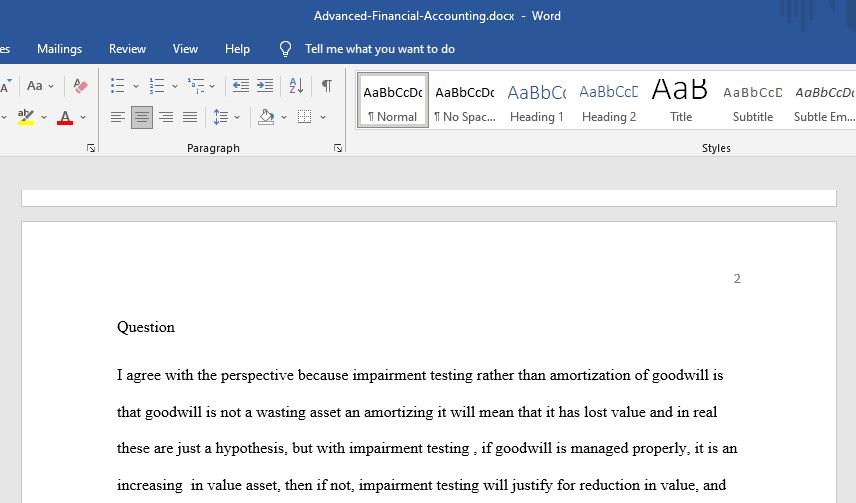Should goodwill be subject to impairment testing in financial accounting?
Assignment extract:
- As explained within the Chapter 8, intangible asset, Australian accounting standards now prohibit goodwill from being subject to amortisation. There is a requirement that goodwill be subject to impairment testing. In relation to impairment testing of goodwill, Petersen and Plenborg (2010, p.420) state:
Many argue that an impairment test only approach seems a logical step in the development of accounting for goodwill. First, the underlying logic for removing the traditional amortization methodology is that the amortization on a straight-line basis over a number of years contains no information value for those using financial statements (Jennings et al., 2001).
REQUIRED
You are to provide a clear argument as to why you agree or disagree with the perspectives provided in the paragraph above.
- On 1 July 2015 Kruger Ltd privately issues $1 million in six-year debentures, which pay interest each six months at a coupon rate of 6 per cent per annum. At the time of issuing the securities, the market requires a rate of return of 4 per cent.
Required
(a) Determine the fair value of the debentures at the time of issue.
(b) Provide the journal entries at:
(i) 1 July 2015
(ii) 31 December 2015
(iii) 30 June 2016.
- Sun City Limited commences construction of a multi-purpose water park on 1 July 2014 for Pretoria Limited. Sun City Limited signs a fixed-price contract for total revenues of $50 million. The project is expected to be completed by the end of 2017 and Pretoria Limited controls the asset throughout the period of construction .The expected cost as at the commencement of construction is $38 million. The estimated costs of a construction project might change throughout the project—in this example, they do change.
Answer preview:
Word: 1,200

